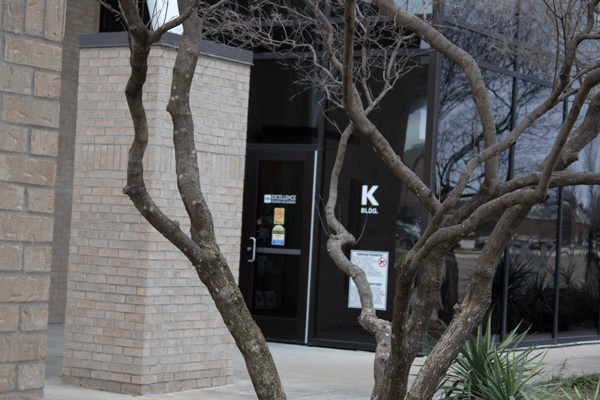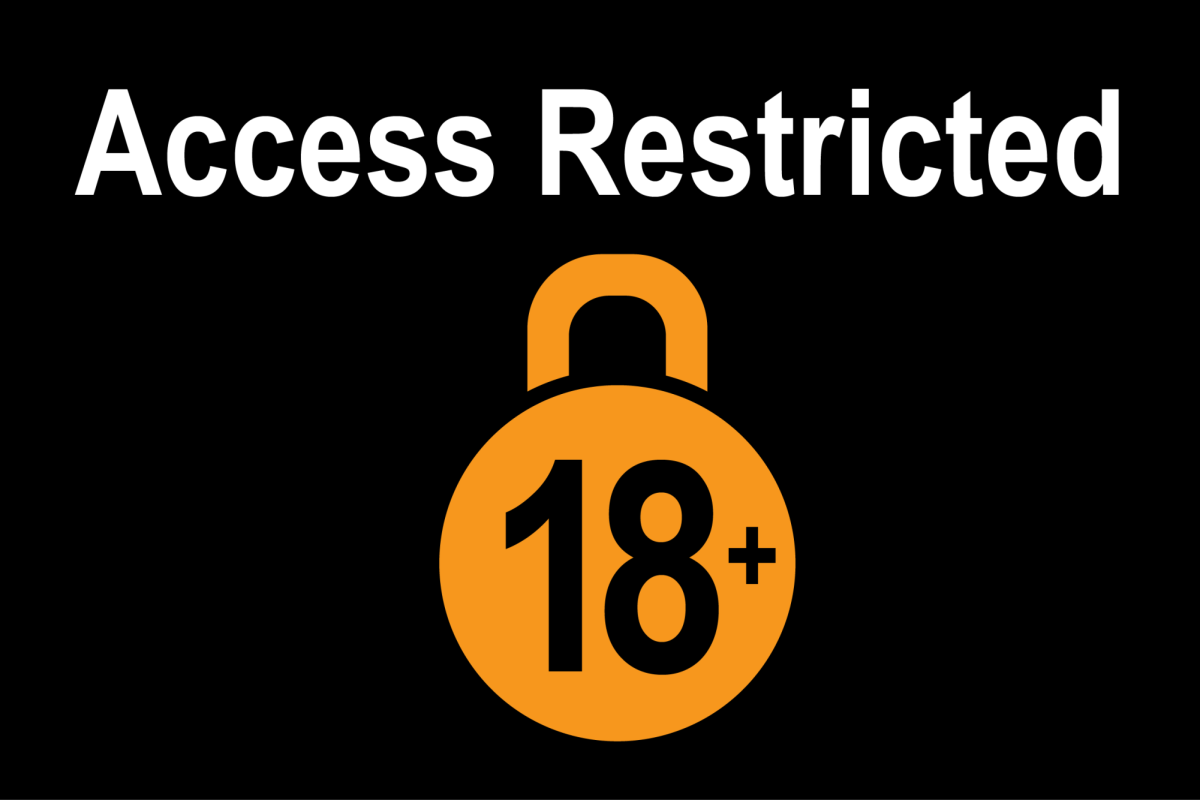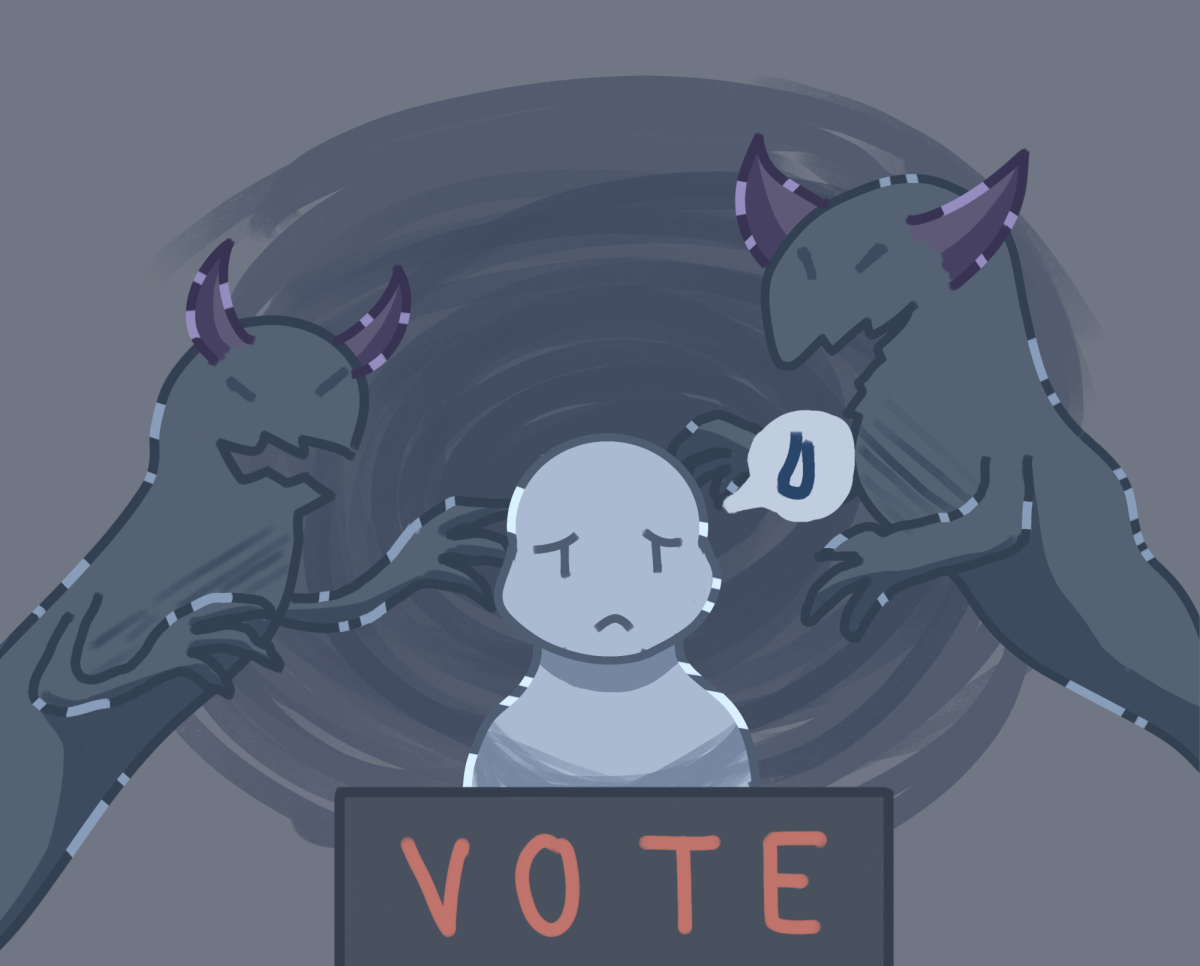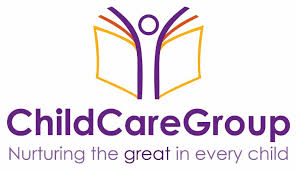
By SKYE SEIPP
@seippetc
Qualifying students and members of the community can now get free child care at Eastfield through the ChildCareGroup.
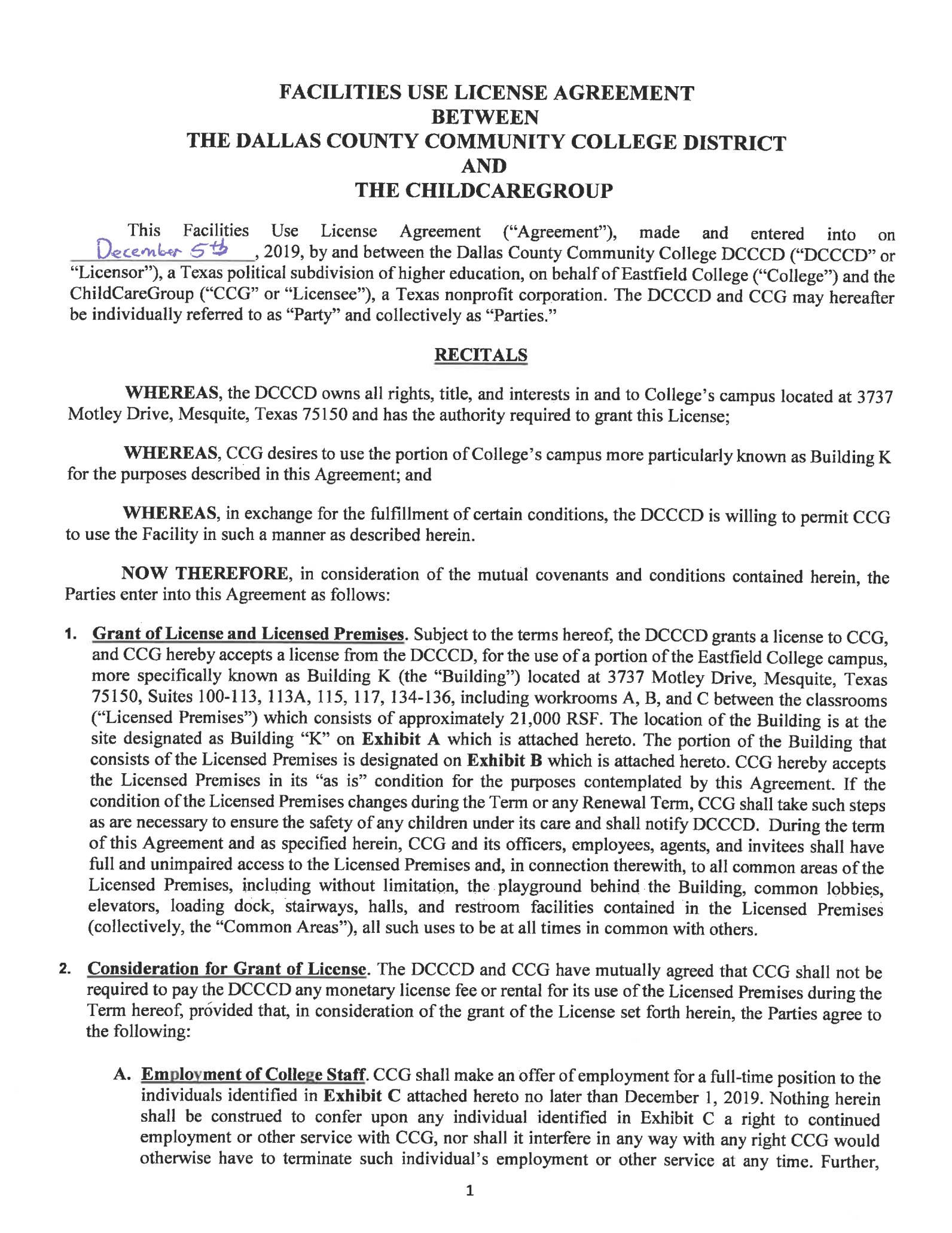
Three Eastfield students were signed up for services as of Jan. 28, according to John Owen, vice president of philanthropy and communications at CCG. He said there were 12 available slots.
Owen said CCG has capacity for 36 children in the Early Head Start Program and 35 in the Head Start Program for a total of 71, which is an additional 44 slots from what was being offered when Eastfield ran the program.
In September, President Eddie Tealer told staff of the Eastfield Children’s Laboratory School they would no longer be employees of the Dallas County Community College District after Dec. 31, and that ChildCareGroup was expected to take over in January.
A contract was signed with the district and CCG after the DCCCD Board of Trustees approved a one-time payment of $25,000 to CCG during their Dec. 3 meeting. The payment allows parents who were using the then Children’s Laboratory School on a tuition basis to stay through Dec. 31, 2020.
Tuition rates for those parents will go up after June 1 by a rate “not to exceed 15 percent,” according to the contract.
“I think at a very high level, our organizations are both aligned with the understanding and recognition that parents have to have access to safe, affordable quality child care in order to go to work or school,” Victoria Mannes, president of CCG said. “It’s an issue for so many students in the DCCCD district population.”
Employees were offered the same pay as before but lost their district benefits, which included free health insurance.
In spring 2019, Eastfield had 1,176 total students who expressed interest in learning more about child care programs, according to a district survey, which is 7.1 percent of the 16,487 students enrolled at Eastfield last spring.
The services are offered to anyone who qualifies for CCG’s program, which uses the federally funded Early Head Start and Head Start programs to provide free child care to families with low incomes. CCG has open enrollment until spaces are full, after which people can get on a waitlist.
Mannes said income is not the only criterion used to determine eligibility. Active or former military members, children in foster care and homelessness are some other factors.
“Generally, when a student is trying to go to school and maybe work part-time, their income is lower, and we generally find that they would qualify for this program,” Mannes said. “We are doing … whatever we can do to … serve the students of the district. That is our aim to this program.”
[READ MORE: Campus child care to be outsourced: K Building staff to be laid off amid reorganization]
Moniqua Queme, a mechanical engineer major, had been looking at day care services for her 3-month-old son, Mojad. She found services for $400 every two weeks before an adviser told her about the free child care offered at Eastfield.
“[My parents] work and I go to school, so I wanted to take that burden off their backs,” Queme said. “I just want to do the best by him, by the family. … I was just looking for a day care to be able to go to school and to be able to not put the burden on my family.”
Since starting school she’s been able to quit her job as a dishwasher at Mi Cocina and said she plans to focus on her studies and getting involved on campus. She said it relieves her worries knowing he’s close to her, and having free child care allows her to take more classes.
“I would have been [taking] just like straight core classes, and that’s it,” Queme said. “I would have to have rushed straight home to take care of him.”
Theater professor Dusty Reasons-Thomas has been using the Children’s Laboratory School since 2015 and is staying for now. She said there hasn’t been a lot of major changes since CCG took over, but that empty classrooms are filling up, which she said was needed.
Thomas said some other changes include how late CCG stays open. The Children’s Laboratory School used to close 6 p.m., but now it’s 5:30 p.m., and once a month on a Wednesday CCG closes early for training. The Head Start program also shuts down in the summer months for children ages 3 to 4.
As a kid, Thomas attended college with her mom. She said this gives her empathy for the struggles of student parents trying to work, take classes and raise a child.
Last year she paid almost $24,000 for child care for her two kids and said when she was right out of college working for $10 an hour, that price would have been unattainable.
“If I would have had a child, I would have been stuck,” Thomas said. “This opportunity for students is great.”
She wishes there was a way for the current tuition-paying parents to stay with the program, though. And she said it could be beneficial for everyone to have a “diverse balance” of kids.
[READ MORE: K Building salaries to stay the same, other questions still remain]
Marlen Perez, an accountant with KPMG and Eastfield alumna, has used the Children’s Laboratory School for both of her children since 2013.
Her daughter is out of the program now, but her 3-year old son is still enrolled in the multi-age room. Perez is not happy with the transition to CCG and the negative impact she said it’s had on the teachers.
She said parents who stayed were not told about the new closing time of 5:30 p.m. or the one Wednesday a month CCG closes at noon until after they decided to stay. And added that there’s been no indication their tuition will be prorated for the time their children aren’t in the facility.
Perez continued by saying the new food options aren’t the same quality as what were offered by the Children’s Laboratory School.
“My kids might as well be eating barbeque beans and honey buns,” she said. “We have an onsite kitchen at Eastfield, and that was a major selling point for a lot of parents.”
Math professor Tina Giraud decided to take her 2-year-old son out of the Children’s Laboratory School in January rather than stay for the transition.
She said better communication at the beginning would have made the change better.
“I also liked the fact that a lot of my co-workers had their kids there too,” Giraud said. “It was like a big little family there and the other day care, … there are double the amount of kids.”
[READ MORE: On-campus childcare out of reach for low-income students]
Thomas and Giraud both said when the Children’s Laboratory School was still running, parents would list each other as emergency contacts, so in case their child was sick and that parent was busy, they could help each other out.
Giraud said now she doesn’t have that, and if she gets a call about her child, she has to leave immediately to pick him up within 30 minutes.
“I understand why it happened,” she said. “I know serving the community is one of the aspects that we’re doing here at Eastfield. … It was just a shock.”
Marla Ponce worked as a teacher with the Children’s Laboratory School for 19 years when she found out she was getting laid off. She planned to retire with the district in another 10 years, but now that opportunity is gone.
She said when they first moved to the K Building 10 years ago, they thought something like this would happen, but after a decade, they weren’t expecting to lose their jobs.
“[I’m] disappointed, but at least we still have the children, we have most of our staff here,” Ponce said, “We got new children, and it’s OK. It’s not what we wanted.”
Currently, she works with children who transitioned from the original program.
She said it’s upsetting losing some of the kids they had worked with for years and others who had siblings go through the program, like Giraud, whose oldest son graduated from Children’s Laboratory School.
Ponce said there have been programs in the past that helped families with lower incomes get affordable or free child care with the Children’s Laboratory School.
She said those programs were likely cut due to budget concerns and because the center went through multiple directors over a span of 10 years.
“Things could have stayed the same or changed, but they decided to cut their losses,” she said. “That’s what frustrates us all, because we could have still had students and people from the community with lower incomes come to the same center. But I don’t know if they didn’t do their homework or they just didn’t really want to mess with having to revamp everything and try to … get back on the programs again.”
[READ MORE: Enough time for mom: Current maternity leave policies draw scrutiny]
She said the transition has brought on new paperwork and added cost to employees, mainly in health insurance, which before was paid in full by DCCCD.
Ponce said CCG is still a “great organization,” with the same level of instruction for children that were offered by the Children’s Laboratory School.
The instruction for the children is still accredited by the National Association of Education for Young Children and Early Childhood Development, and students will continue to use the facility as a learning lab. Mannes said all CCG locations are NAEYC accredited.
CCG also offers other services to parents through their “second generation” approach to child care. Parents in need can be set up with a “family advocate,” which Mannes said can guide the parents to help with housing, food and other basic needs.
Children in CCG are also assessed within 45 days of enrollment to spot any sort of “developmental delay,” Mannes said. If a child gives any indication of a delay, she said the parents are notified, and with permission CCG brings in a therapist or “inclusion specialist” to their building.
She said both of these services are free with admittance to the program.
“This is a very holistic model that delivers not only very high-quality early childhood education for the children in our program, but it also provides this holistic wraparound network of services for the parent, because … we understand that children live in the context of families,” Mannes said. “And if we’re going to make gains for the children in our program, we also have to be concerned about helping the parent succeed.”
People wanting to apply are advised to visit the K Building or call 972-860-7195 to discuss options.
https://eastfieldnews.com/2019/09/12/disrupting-lives-shows-lack-of-integrity/



